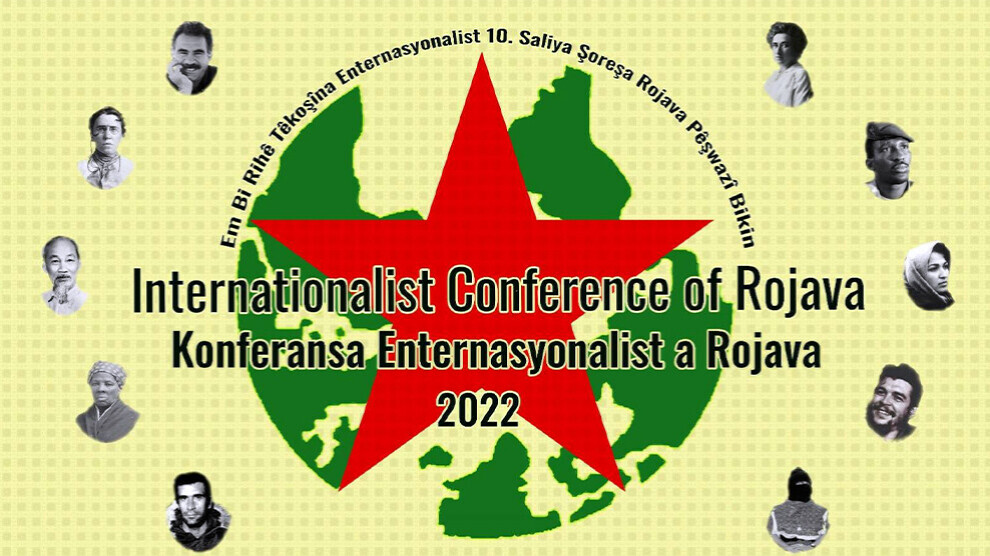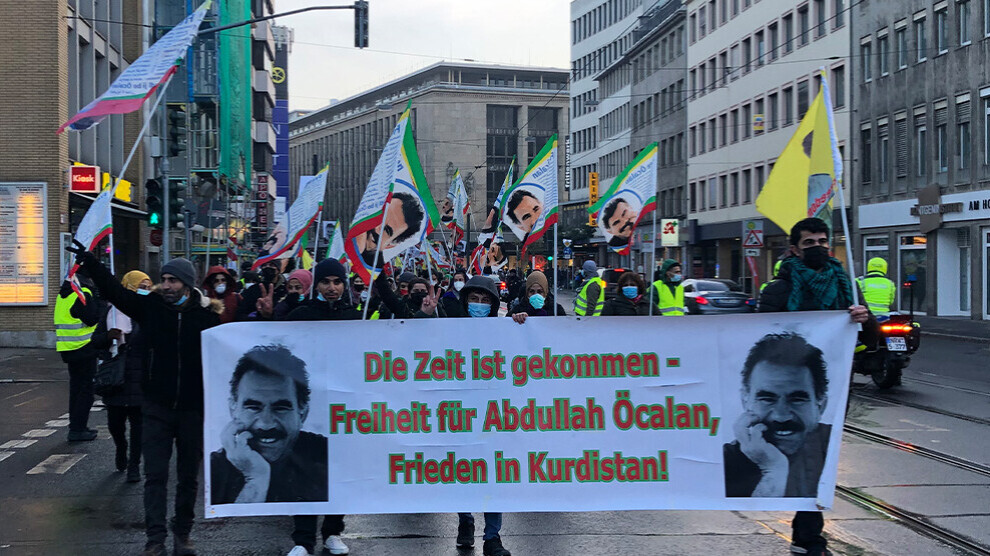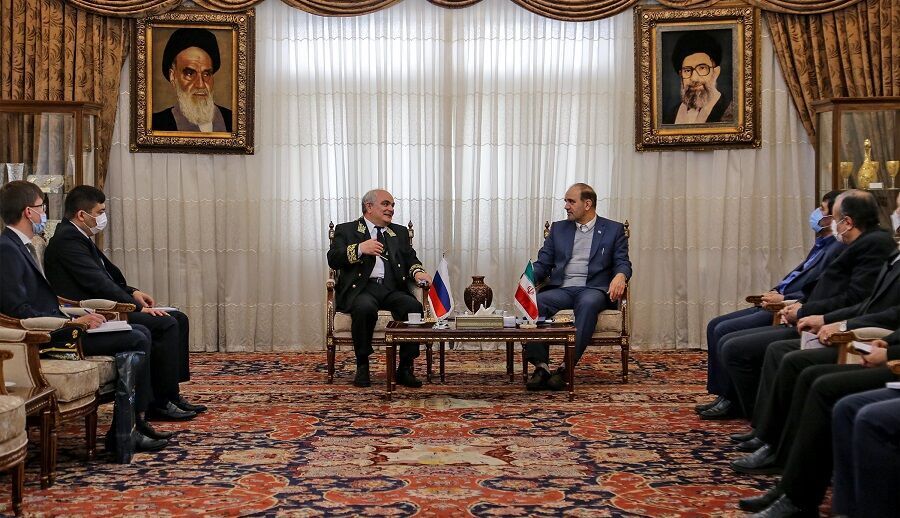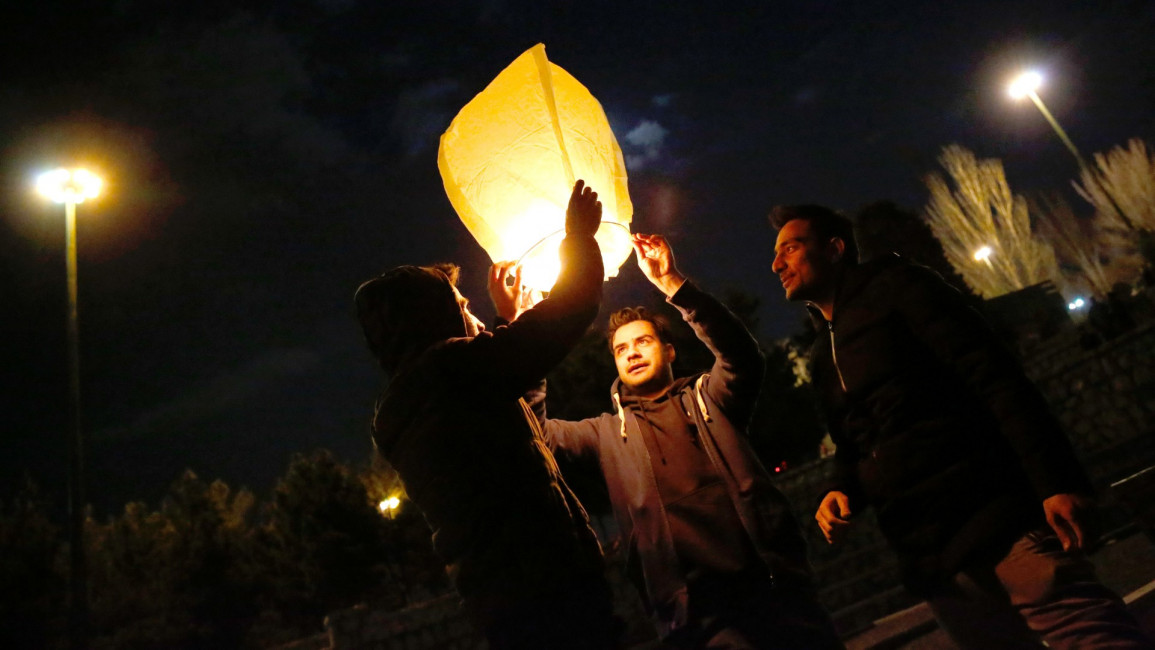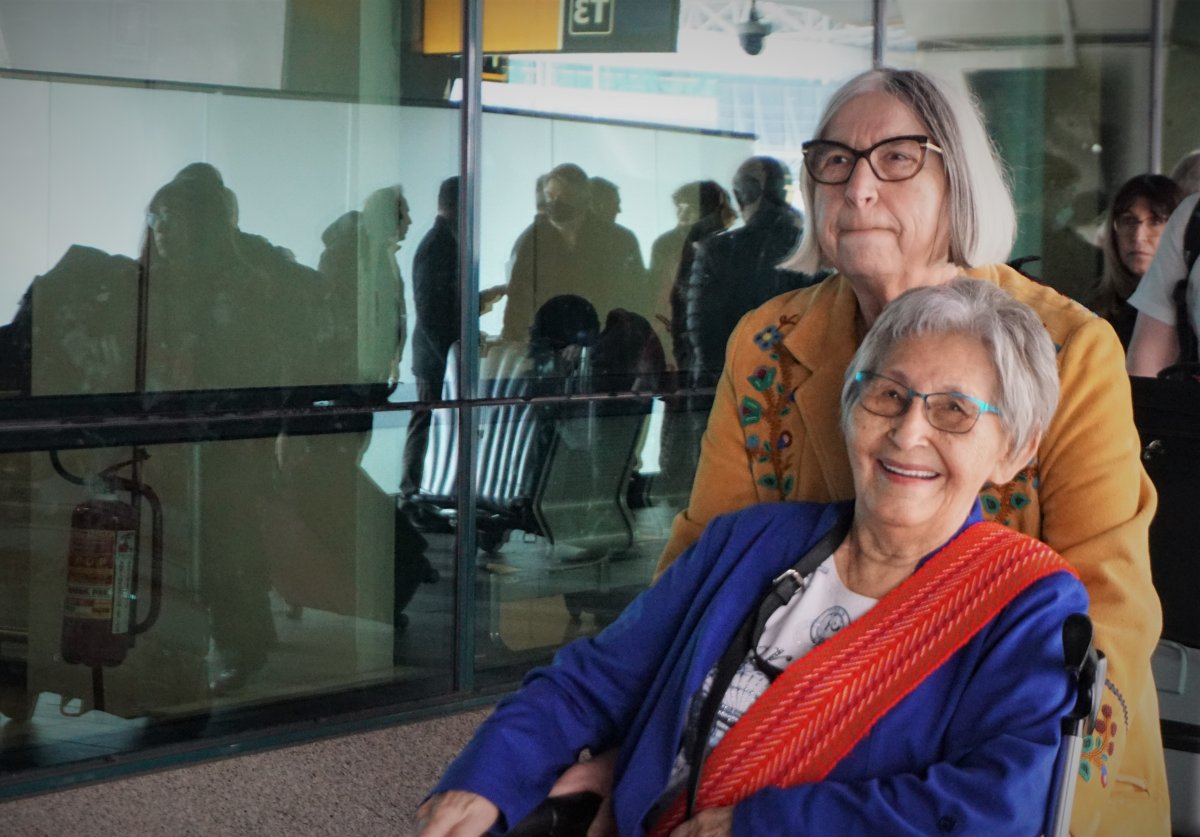First Internationalist Conference of Rojava releases final declaration
The First Internationalist Conference of Rojava was held with the participation of all internationalist structures and institutions in Rojava. The meeting established the road map for the new period.
The Preparatory Committee of the First Internationalist Conference of Rojava, emphasizing the world's expanding crisis and war, as well as the world's widening system crisis, urged all anti-system forces to fight within the framework of the Democratic Confederalism of the Peoples of the World.
The Internationalist Conference of Rojava was held for the first time. After the meeting, the Preparatory Committee issued the following final declaration:
“Today, crises are rising around the world, and an imperialist war is underway. In Asia, Africa, Latin America, and the Middle East, this crisis has already existed. With the war between Ukraine and Russia, this situation became more visible on the European continent as well. These wars and crises, it appears, will worsen, and their contradictions will be seen more all around the world. This crisis is not limited to the ruling classes. This war's purpose is to shatter and destroy the resistance wave of women, environmentalists, revolutionary movements, youth, anarchists, and popular organizations.
RESISTANCE BECOMES INTERNATIONAL
Today, there is a serious system crisis that is becoming increasingly severe. Today, humanity is confronted with issues of freedom, class, democracy, and ecology. The system that devastates peoples, cultures, women, youth, workers, countries, and nature was met with relentless opposition. From Spartacus' resistance to Bruno's, from witch hunts to Zapata, Mandela, and Rosa, it has survived to the present day under the guidance of Arîn, Ronahî, and Bager in the twenty-first century under the leadership of Abdullah Öcalan. Today, there is a growing global resistance, and this opposition is taking on an international dimension. People’s international self-defense organization is the most powerful response against fascist, reactionary, and racist attacks all around the world. Because the problem is on a worldwide scale, resistance and battle must be international and global as well.
REVOLUTION ON THE BASIS OF DEMOCRATIC CONFEDERALISM
The political system in charge is waging a war against the peoples, movements, and circles that are resisting today. It captures and murders freedom fighters and pioneers, criminalizes movements and resistances, liberalizes the stances they have set, assimilates cultures, and tries to break optimism by weakening their will. In response, there is a Democratic Confederalism-based revolution in Kurdistan, and all over the world, women, ecologists, cultural resistance, oppressed peoples, and all anti-system identities and movements are growing. The rising wave of socialism in Latin America inspires hope like the Rojava Revolution, while women's and environmental radicalism strengthens the resolve to oppose the capitalist system. The Zapatista movement, like the guerrilla resistances in Kurdistan and the Philippines, is carrying out their freedom struggles in Mexico City with revolutionism against occupation and colonialism all over the world.
CONFERENCE DEDICATED TO INTERNATIONALIST MARTYRS
We successfully organized the First Internationalist Conference of Rojava with all the internationalist structures and institutions in Rojava with the motto "Greeting the tenth anniversary of the Rojava Revolution in internationalist spirit" to assess the revolution's achievements. We commemorated all the international martyrs in the persons of martyrs Ronahi, Avaşîn, Dilsoz, Bager, Lêgerîn, Sara, Andok, Paramaz, and Partizan. With the promise to fulfill the dreams of martyrs, the conference was dedicated to all international martyrs and fighters.
THE PURSUIT OF FREEDOM ALWAYS SUCCEEDS
The opening speech was followed by an assessment of the political situation in Kurdistan, the Middle East, and the world. Panel discussions on the development of foreign experiences were held. According to the conference evaluations, the self-proclaimed success of capitalism modernity over socialism, which announced "the end of history" following the collapse of the Soviet Union, was similarly in vain. On the contrary, capitalist modernity has been observed to be increasingly harmful in the previous 30 years, destroying society as well as nature. Although revolutionary movements have been suppressed to varying degrees over the last century, the pursuit of freedom has never diminished. On this basis, societies in Latin America, the United States, Asia, Africa, Europe, and the Middle East have today stood up and rebelled under the leadership of women and youth against oppression, labour theft, and colonialism. The democratic flow of history is alive and here.
A NEW CHAPTER IN THE LAST TEN YEARS
With the emergence of the Rojava Revolution, a new chapter in the history of the oppressed peoples' struggle in the last ten years has been written. Tens of thousands of martyrs of this revolution wrote this new chapter with their blood, declaring that the oppressed peoples of the world, particularly the Kurds, will define their own destiny in the twenty-first century and defend the legacy that has been passed down for thousands of years.
INSPIRATION FOR THE ANTI-SYSTEM MOVEMENTS
With its 50-year history, the Kurdish Freedom Struggle serves as an inspiration and source of strength for all anti-system movements around the world. We must unite under the Democratic Confederalism of the Peoples of the World to start a new international liberation struggle against all forms of imperialism, colonialism, occupation, patriarchy, and plunder. Let's brighten the light of revolution against reactionism and fascism, broaden the radical struggle against liberalism, which has infected humanity like a virus, and weave the web of a communal, equal, honorable, and free life.
THE INTERNATIONALISTS WILL FULFILL THEIR DUTIES
Our conference covered a wide range of topics concerning the role of international struggle. The international fight served as a bridge of solidarity between peoples in the defense and development of the revolution. During our conference, we came to the conclusion that the 10th anniversary of the revolution is a success for the hope of a free life. Without a question, the area of an internationalist struggle for the defense of the hope of a free life is strategically significant. The internationalists will successfully fulfill their duties in protecting the revolution's values and promoting the hope of a free existence in the new period.
THE SOURCE OF FREEDOM AND HOPE
Discussions and assessments based on these foundations have resulted in a significant amount of power and emotion. At a time when capitalism violates all human values, Rojava emerged as a source of hope, enlightenment, freedom, equality, friendship, and love. The conference will finalize the revolution's defense with an international struggle alliance, because internationalism is the best weapon of revolutionaries. We, as conference participants, will defend and develop the Rojava Revolution through international alliance and struggle.
THE REVOLUTION OF THE AGE: WOMEN'S REVOLUTION
The conference also put emphasis on the role and pioneering mission of women in revolution defense. The conference determined that the women's revolution in Kurdistan, led by women, was the revolution of the age, and established women's resistance culture and jineology as a set of criteria and roadmap for them to transform the twenty-first century into a century in which the gender conflict was resolved.
In this context, our conference decided on joint plannings to expand the international fight against occupation, colonialism, and the patriarchal system, as well as to promote the Democratic Confederalism of the Peoples of the World and internationalist efforts.
COMMITMENT TO END THE OCCUPATION
Our conference hailed Rêber Apo's [Abdullah Öcalan’s] resistance against Imrali isolation and emphasized its determination to broaden the campaign for the freedom of all prisoners of liberty, particularly Rêber Apo's physical freedom.
At the same time, the conference demonstrated the tenacity required to fight for the liberation of occupied areas such as Afrin, Serêkaniyê, and Girê Spî. In this context, important discussions were made to expand the 'RiseUp4Rojava' and 'WomenDefendRojava' campaigns, and it was agreed that an International Anti-fascist front should be developed to fight the global fascism wave all over the world.
THE CENTER OF ANTI-SYSTEM MOVEMENTS
Our conference concluded that Rojava should play the required role in order to become the core of global anti-system movements in the next era. In this framework, and inspired by the conference's commitment and enthusiasm, we call on all revolutionary, socialist, anarchist, feminist, ecological, and democratic movements and organizations to ‘come to Rojava’. Let’s all work together to make the tenth anniversary of the Rojava Revolution a reason for growth and expansion. Let's unite under the banner of the Democratic Confederalism of the Peoples of the World to expand the struggle for freedom. Let's elevate the future's hopes together. Let's work all together to beautify the planet in the spirit of the women's movement."
